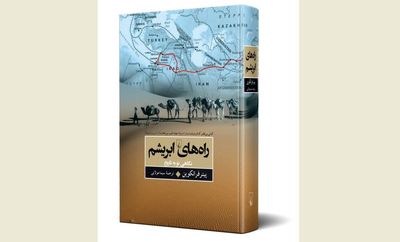The New Silk Roads takes a fresh look at the relationships being formed along the length and breadth of the ancient trade routes today.
The world is changing dramatically, and in an age of Brexit and Trump, the themes of isolation and fragmentation permeating the Western world stand in sharp contrast to events along the Silk Roads, where ties are being strengthened and mutual cooperation established.
This prescient contemporary history provides a timely reminder that we live in a world that is profoundly interconnected.
Following the Silk Roads eastwards from Europe through to China, by way of Russia and West Asia, Peter Frankopan assesses the global reverberations of continual shifts in the center of power – all too often absent from headlines in the West.
The New Silk Roads asks us to re-examine who we are and where we stand in the world, illuminating the themes on which all our lives and livelihoods depend.
“The Silk Roads”, a major reassessment of world history, has sold over 1 million copies worldwide.
Frankopan studied history at Jesus College, Cambridge, where he was Foundation Scholar, Schiff Scholar and won the History Prize in 1993, when he took an outstanding first-class degree.
He did his Ph.D. at Corpus Christi College, where he was elected to a senior scholarship before moving to Worcester College as Junior Research Fellow in 1997.
He has been a Senior Research Fellow since 2000 and is director of the Oxford Centre for Byzantine Research at Oxford University.
He is a fellow of the Royal Historical Society, the Royal Society of Arts, the Royal Anthropological Institute, and the Royal Asiatic Society.
He has held visiting fellowships at Dumbarton Oaks (Harvard) and Princeton, and has lectured at universities all over the world including Cambridge, Harvard, Yale, Princeton, NYU, Notre Dame, King’s London and The Institute of Historical Research.
He writes regularly for the national and international press about current affairs and about how history helps to explain the present. His work has been translated into twelve languages.
Source:Tehran Times

